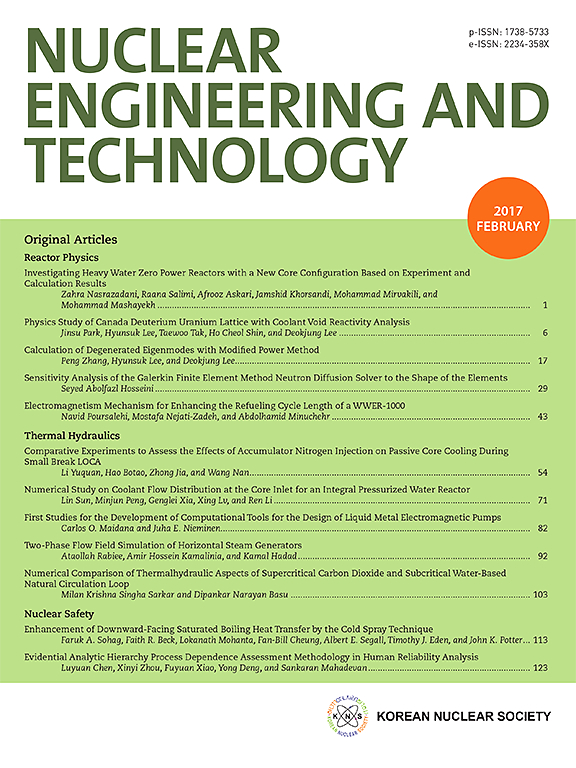Research on intelligent hierarchical control method for U-tube steam generator water level based on TD3-MPC
IF 2.6
3区 工程技术
Q1 NUCLEAR SCIENCE & TECHNOLOGY
引用次数: 0
Abstract
Aiming at the issues of poor control performance at low power levels and difficulties in precise modeling for U-tube steam generators (UTSG), this paper proposes an intelligent hierarchical control method optimized based on deep reinforcement learning. The primary controller adopts the model predictive control (MPC) algorithm, which directly regulates the water level through an improved objective function. The advanced controller is an agent-based controller utilizing the model-free twin delayed deep deterministic policy gradient (TD3) algorithm, responsible for real-time optimization of the MPC controller parameters. Additionally, to enhance the learning efficiency and convergence performance of the agent, a reward function design framework based on nonlinear scaling and normalization is proposed. Simulation results demonstrate that, compared to traditional methods, the proposed approach achieves precise control of UTSG water level, significantly improves control performance, and enhances adaptive capability and system robustness.
基于TD3-MPC的u型管蒸汽发生器水位智能分级控制方法研究
针对u管蒸汽发生器(UTSG)在低功率下控制性能差、难以精确建模的问题,提出了一种基于深度强化学习优化的智能分层控制方法。主控制器采用模型预测控制(MPC)算法,通过改进的目标函数直接调节水位。高级控制器是一种基于代理的控制器,利用无模型双延迟深度确定性策略梯度(TD3)算法,负责MPC控制器参数的实时优化。此外,为了提高智能体的学习效率和收敛性能,提出了一种基于非线性标度和归一化的奖励函数设计框架。仿真结果表明,与传统方法相比,该方法实现了UTSG水位的精确控制,显著提高了控制性能,增强了自适应能力和系统鲁棒性。
本文章由计算机程序翻译,如有差异,请以英文原文为准。
求助全文
约1分钟内获得全文
求助全文
来源期刊

Nuclear Engineering and Technology
工程技术-核科学技术
CiteScore
4.80
自引率
7.40%
发文量
431
审稿时长
3.5 months
期刊介绍:
Nuclear Engineering and Technology (NET), an international journal of the Korean Nuclear Society (KNS), publishes peer-reviewed papers on original research, ideas and developments in all areas of the field of nuclear science and technology. NET bimonthly publishes original articles, reviews, and technical notes. The journal is listed in the Science Citation Index Expanded (SCIE) of Thomson Reuters.
NET covers all fields for peaceful utilization of nuclear energy and radiation as follows:
1) Reactor Physics
2) Thermal Hydraulics
3) Nuclear Safety
4) Nuclear I&C
5) Nuclear Physics, Fusion, and Laser Technology
6) Nuclear Fuel Cycle and Radioactive Waste Management
7) Nuclear Fuel and Reactor Materials
8) Radiation Application
9) Radiation Protection
10) Nuclear Structural Analysis and Plant Management & Maintenance
11) Nuclear Policy, Economics, and Human Resource Development
 求助内容:
求助内容: 应助结果提醒方式:
应助结果提醒方式:


